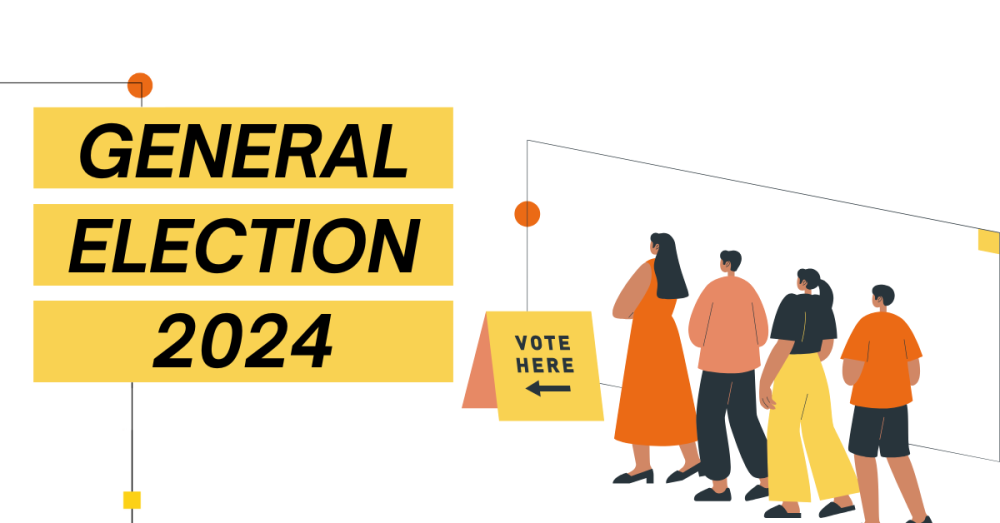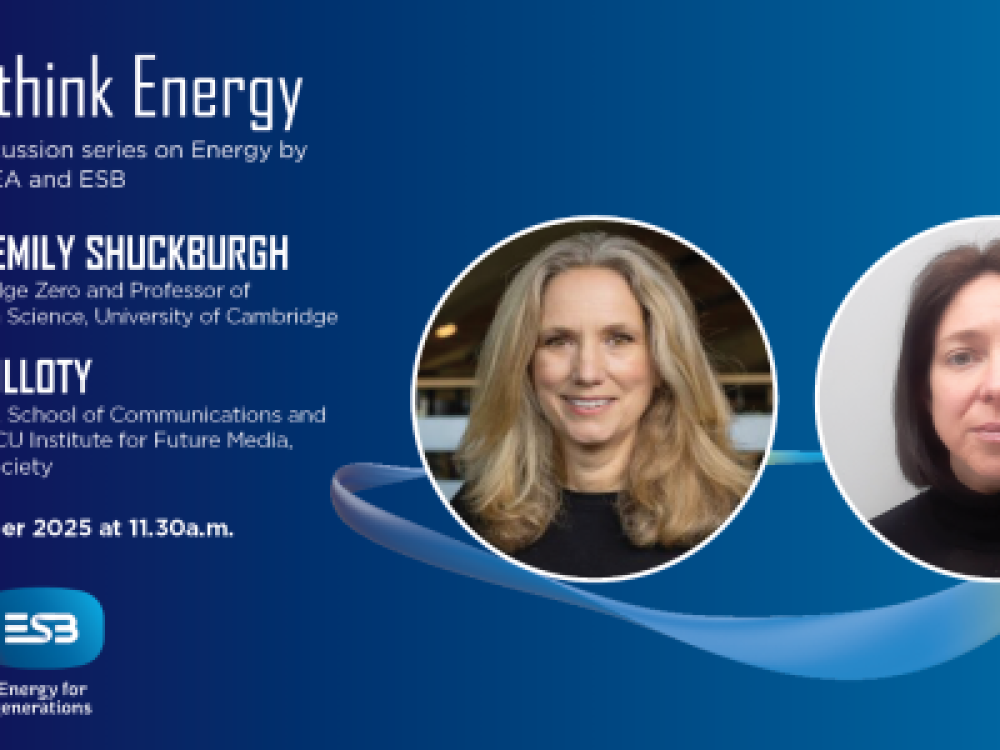The National Alliance
June’s local elections were largely successful for the Irish far right with six anti-immigration candidates elected to local councils. In the aftermath, right-wing candidates began considering what steps would need to be taken in order to recreate this success in the upcoming general election. The fractured nature of the anti-immigration block, which was split across four parties – The National Party, Ireland First, The Irish People, and The Irish Freedom Party – and countless independents was identified as a clear liability. By July 2024 discussions of an electoral pact designed to avoid vote splitting were underway. The National Alliance launched in late August 2024, with leadership comprising Derek Blighe (Ireland First), AJ Cahill (The Irish People), and Cllr. Patrick Quinlan (The National Party). The latter succeeded James Reynolds as party leader following Reynolds’ unsuccessful June election bid after which he denounced the National Party as a “toxic” brand.
The National Alliance’s stated mission is to “uphold the principles that put the Irish people and their needs first, standing firm in the battle between globalism and nationalism”. Blighe is slightly more candid about its purpose, describing it as “people working together to try to eliminate the carry on in the local and European elections”. Until recently, the National Alliance’s website lacked any specific policy, instead offering a number of values around which it was expected members could find agreement. These values were vague, often repurposing broad slogans that had become popular at demonstrations. Their values regarding housing, for example, simply read “House the Irish, not the world”. Similarly, their values regarding education stated “Education, not indoctrination”. These slogans have recently been reverse engineered into more comprehensive policies, although no efforts has been made to hide their clear anti-immigrant and anti-LGBTQ+ agenda. Their housing policy, for example, concludes by stating “Our housing policy guarantees that Irish families come first in their own homeland. By addressing the pressures caused by immigration, abuse of the asylum system, and welfare migration, we will protect housing for Irish people, while also boosting the development of affordable homes and sustainable communities” (emphasis in original). In a similar vein, their education policy begins by explaining “This policy aims to rebalance the focus of education towards practical skills while removing harmful and inappropriate content such as gender identity theories, Critical Race Theory, queer theory, identity politics, and highly sexualized materials, including pornography, from Ireland’s primary, secondary, and third-level curricula (again, emphasis in original).

Notably absent from this coalition is The Irish Freedom party, whose leader Hermann Kelly stated reason for abstaining involved concerns about the coalition not being an official party, and their name not appearing on ballot papers. However, it appears concerns about being associated with more overtly far right parties may also have been a concern, with Kelly appearing eager to emphasize that the Irish People are a Libertarian Nationalist party, with a platform that goes beyond immigration, addressing issues such as energy, crime, and taxation. Indeed, unusual for this kind of party, their policy platform does not include any policies explicitly aimed at addressing immigration (although mass immigration is blamed for suppressing wage growth, and their Twitter account makes frequent negative mentions of Ukrainian refugees, asylum seekers, and “illegal migrants”). Although not addressing Kelly or the Irish Freedom party directly, a statement released by Derek Blighe in July 2024 lamented that: ‘Unfortunately, the other political parties involved in the discussions were not willing to make the concessions made by Ireland First, the Irish People and the National Party needed to make the alliance work.’
The need for strategizing and concessions is especially pressing in the general election, given that anti-immigration candidates appear to have benefitted from low turnout in June’s local elections. While national turnout was just below 50%, it was considerably lower in constituencies where far right councilors were elected. The National Party’s Patrick Quinlan was elected with just 856 total votes in the Blacnhardtown-Mulhuddart LEA, where turnout was just 32.5%. Similarly, The Irish Freedom Party’s Glen Moore was elected in the Palmerstown-Fonthill constituency with 1464 total votes, and a turnout of 37.4%. In the North Inner City, where turnout was 34.1%, independent Malachy Steenson was elected with 1232 votes, while independent Gavin Pepper was elected in the Ballymun-Finglas LEA, with 2139 votes, and a turnout of 41.7%. With the exception of Pepper, all anti-immigration candidates were elected on the final count, with some failing to secure the quota. Turnout is expected to be well above 60% in the general election, meaning far-right candidates are unlikely to benefit from such low turnout this time around.
As well as that, far-right candidates went into the local elections on the back of the defeats of two government referenda, for which they claimed credit, and a fervent belief that this proved their positions were now held by a silent majority of voters. Despite this, National Alliance parties only received 1.7% of the vote in June’s elections. Including the Irish Freedom Party vote, the number rises to just 2%. Given that a general election will have significantly fewer seats, it is difficult to see a path to the Dáil with these kinds of numbers. But not impossible. Indeed, in the 2020 general election, candidates running for Solidarity-People Before Profit received just 2.63% of first preference votes, but managed to return five TD’s. The electoral left seem to have avoided concerns about vote-splitting by embracing Ireland’s single transferable vote system, with a concerted effort made on social media encouraging voters to “Vote left, transfer left” even going so far as to create shareable infographics for each constituency, explaining the order in which order candidates should be ranked to increase the chances of returning left and left-leaning TD’s to the Dáil.
While such an approach would have been possible for the right, the National Alliance electoral pact instead aims to have just one anti-immigration candidate run in each constituency to avoid vote-splitting. It could be argued that such an approach is unnecessary given Irelands single-transferable-vote system, although anyone who has spent any time poring over spreadsheets of Irish election results knows that transfers and surpluses can split in all sorts of unexpected directions, and ideological consistency can’t always be counted on.
Nevertheless, it seems the National Alliance’s strategy might already be in jeopardy. Of the 43 constituencies in the 2024 election, there are just 16 where a single anti-immigration candidate is running. And in some cases, this candidate is not even a member of the National Alliance. Cllr. Malachy Steenson, for example, is the sole right wing candidate running in Dublin Central, with no opposition from the national alliance or the Irish Freedom party.
While this might suggest a strategic choice within the National Alliance to avoid running candidates against sitting anti-immigration councilors, they have not held back elsewhere. The National Party’s Stephen Redmond will be competing against Independent Cllr. Gavin Pepper in Dublin North West, while the Irish People’s Robert Coyle will be running against IFP’s Cllr. Glen Moore in Dublin Mid-West. The Irish People’s Jina Ahearne is running against Cllr. Phillip Sutcliffe in Dublin South Central, alongside IFP’s Barry Ward, and Independent Delores Webster, meaning four anti-immigration candidates are running in this 4 seat constituency.
The National Alliance have decided not to run any candidate in Dublin Bay North, a five-seat constituency, where the IFP’s Paul Fitzsimons will be running against four anti-immigration Independents. Clearly dismayed by this seeming tactical error, Derek Blighe, suggested these candidates ‘need to sit down together and figure out who is most likely (based on past efforts) to win a seat’, adding that others ‘need to man up and step back’. Fitzsimons responded “Bitch all you want amongst yourselves don’t drag me into it. Derek should mind his own business…’. Kevin Coyle, who came close being elected in the Artane-Whitehall constituency in the local elections, argued ‘It’s my area I just missed out by 70 votes of course I have the best chance and they don’t like that.’ Diarmaid Ó Conaráin, who previously ran as an IFP candidate but is now running as an independent in this constituency, was also dismissive of Blighe’s calls for unity and Coyle’s entitlement, claiming it’s ‘his area too’. This degree of infighting and ego may ultimately impact transfers between this cohort, who are not expected to be transfer friendly from more mainstream candidates.
Issues with the electoral pact are also evident outside of Dublin. In Cavan–Monaghan, the National Parties Mark Moore is running as the National Alliance candidate against an anti-immigration Independent, an IFP candidate, and a candidate from Ben Gilroy’s Liberty Republic. Carlow-Kilkenny, Donegal, Galway-West, Kerry, Louth and Wicklow are all running three right wing, anti-immigration candidates, while somewhat confusingly, the National Alliance seem to be running two candidates in the Wexford constituency – The National Party’s Jason Murphy, and the Irish People’s Stephen Power.
In the end, only 12 constituencies feature a National Alliance candidate running as the sole right wing candidate.
A readers’ poll shared on Gript.ie following the first leaders’ debate saw National Alliance candidates getting just 12% the vote, well behind Aontu’s 29%. Elsewhere, some far right figures on X are both trying to encourage their audience to canvass, while simultaneously managing expectations, cautioning them not to expect too much this time, but that the organizing done today will pay off ten-fold in 2029. Whatever shape the Irish far right takes in five years’ time, it’s difficult to see the National Alliance maintaining momentum and holding together if they are unable to win any seats next week.
Related Projects

EDMO Ireland is one of fourteen hubs established as part of the European Digital Media Observatory (EDMO). Coordinated by Dr Eileen Culloty from Dublin City University (DCU), the EDMO Ireland consortium includes the DCU Institute for Future Media, Democracy and Society (FuJo), TheJournal FactCheck, NewsWhip, and the University of Sheffield. It is part-financed by the European Union to monitor and analyse disinformation; conduct factchecks and investigations; develop media literacy resources; as...




